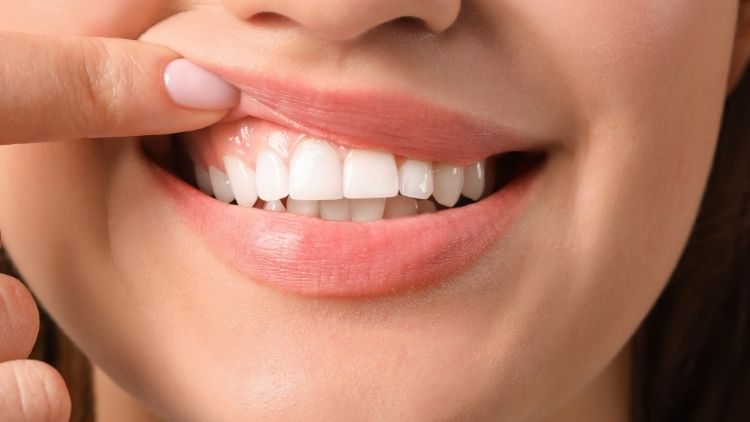Good dental health is about more than having white teeth. It’s about gum health, too. Many people experience gum disease, though you can easily prevent it with good dental habits. Here’s what you need to know to avoid this problem.
What Is Gum Disease?
Gum disease happens when plaque and food get trapped below your gumline. There, bacteria grow and causes an infection that can lead to tooth decay if not treated.
Gingivitis is the early stage of gum disease, and it’s very common. It creates inflammation caused by an infection that shows up as red, swollen gums that bleed easily during brushing and flossing.
Periodontitis is a more severe infection. It happens when the bone under the gums gets infected, too. This disease starts as gingivitis and progresses to cause bone loss that may cause the teeth to decay and fall out.
What Happens if Its Left Untreated?
Gingivitis can make the gums pull back from the teeth, leaving wider pockets where food and bacteria collect and form plaque and tartar. Some risk factors can contribute to gum disease, including:
- Smoking
- Diabetes
- Pregnancy
- Crooked teeth
- Poorly fitted dental appliances
- Certain medications
Untreated gum disease can lead to mouth sores, bleeding, bad breath, and loose teeth that may fall out. It can also cause jaw damage and affect your bite.
Treatment can be as simple as using a medicated mouthwash or antibiotics. More advanced cases may require bone or tissue grafts, laser therapy, or surgery to repair the gums.
How Can You Prevent It?
Preventing gum disease means avoiding the expensive treatments that come with it. It also makes brushing, flossing, and dentist visits more comfortable. You’ll experience less bleeding and inflammation and have stronger gums and healthier teeth.
Luckily, prevention mainly means keeping good dental habits. Brush your teeth at least twice a day, floss every day and schedule dental cleanings twice a year.
Aside from directly caring for your teeth, lifestyle factors affect your gum health. Getting enough sleep and minimizing stress keep your immune system functioning properly. Quitting smoking makes you less likely to develop gingivitis and periodontitis.
If you have crooked teeth, orthodontic procedures like braces can straighten your teeth so that less food gets stuck between them and less plaque reaches below your gumline. Sugary foods increase the bacteria in your mouth, so eating a healthy diet also lowers your gum disease risk.
At Danville Family Dentistry, we can diagnose and treat gum disease at various stages. If you’re concerned about gum disease or want to schedule a cleaning, call us today at 317-745-4400,
Are you on Facebook? We are, too! Let’s be friends!
Disclaimer: The information included in this article is for educational purposes only. It should not be used as a substitute for professional medical advice, diagnosis or treatment.


 (317) 745-4400
(317) 745-4400
